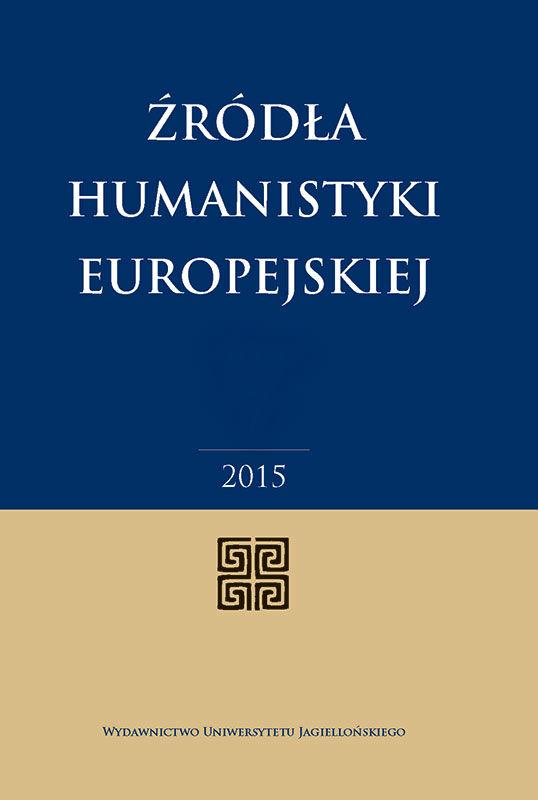The Inescapability of Tragic Human Fate in Joseph Conrad’s Amy Foster
The Inescapability of Tragic Human Fate in Joseph Conrad’s Amy Foster
Author(s): Agata KowolSubject(s): Studies of Literature
Published by: Wydawnictwo Uniwersytetu Jagiellońskiego
Keywords: Conrad; fate; tragedy; Antiquity; Amy Foster
Summary/Abstract: Written in 1901, Amy Foster is a short story by Joseph Conrad first published in the Illustrated London News and included in the Typhoon and Other Stories volume of 1903. As has been argued by numerous critics1, the first-person frame narrative enclosing Doctor Kennedy’s yarn about Yanko Goorall, a shipwrecked emigrant from the Carpathian Mountains who finds his miserable end in an English village, the novella may well reflect some of Conrad’s own fears, anxieties and the sense of personal estrangement as a Polish exile in an adopted country. In wider terms, the novella has often been interpreted as a parable of potential meanness to a fellow human being.2 Moreover, many have seen in Yanko an Everyman (Guerard 1970: 50): he longs for happiness, friendship and love, but is tossed by the cruel sea on a bleak shore, where his hopes are thwarted by suspicion and misunderstanding.
Journal: Źródła humanistyki europejskiej. Iuvenilia Philologorum Cracoviensium
- Issue Year: 2015
- Issue No: 8
- Page Range: 1-16
- Page Count: 16
- Language: English

